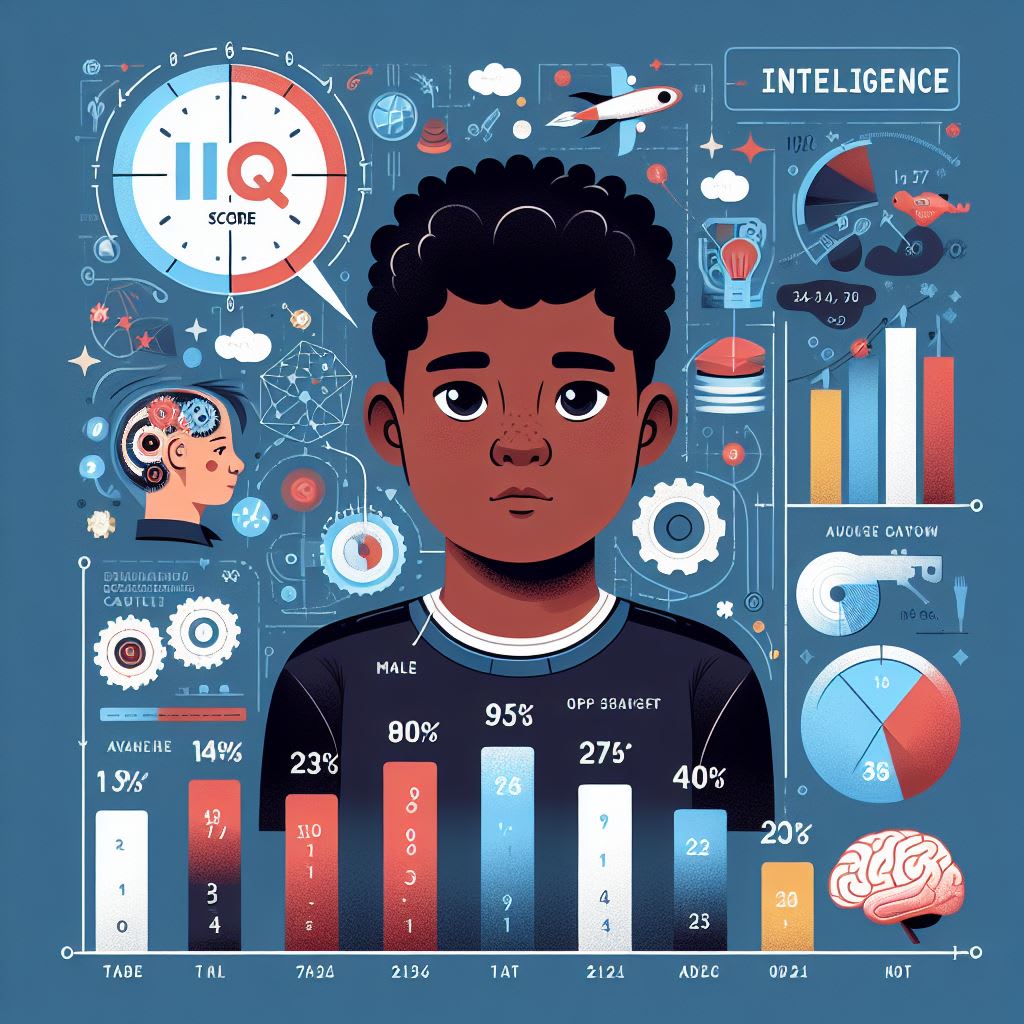
In the journey of parenting, understanding your child's cognitive development is crucial. One metric often discussed is Intelligence Quotient (IQ), which provides insight into a child's intellectual abilities. Here, we delve into the concept of IQ and explore what constitutes a normal IQ range for children.
What Exactly is IQ?
IQ, short for Intelligence Quotient, is a measure of a person's cognitive abilities compared to others in their age group. It encompasses various aspects of intelligence, including problem-solving skills, reasoning ability, memory, and linguistic proficiency.
• Defining Intelligence: IQ is not a fixed trait but rather a dynamic aspect of human cognition. It reflects how effectively an individual can adapt to new situations, learn from experiences, and solve problems.
How is IQ Measured in Children?
IQ testing in children typically involves standardized assessments tailored to different age groups. These tests are designed to evaluate various cognitive abilities and provide a numerical score representing the child's intelligence relative to their peers.
• Standardized Testing: IQ tests for children are often standardized to ensure reliability and validity. They may include tasks such as pattern recognition, vocabulary assessment, mathematical reasoning, and spatial awareness.
What Is Considered a Normal IQ for Children?
Determining what constitutes a "normal" IQ in children can be complex, as intelligence manifests in diverse ways. However, psychologists often use statistical norms to define average IQ ranges within specific age groups.
• Average IQ Range: The average IQ score falls within the range of 90 to 110, representing the majority of the population. Scores between 85 and 115 are considered within the normal range of intellectual functioning.
• Variability in IQ: It's essential to recognize that IQ scores can vary among children due to factors such as genetics, environment, education, and individual differences in cognitive development.
Factors Influencing Children's IQ
Several factors can impact a child's IQ development, shaping their cognitive abilities and intellectual potential.
• Genetic Factors: Hereditary traits play a significant role in determining a child's IQ, as intelligence tends to run in families. However, genetics interact with environmental influences in complex ways.
• Environmental Stimuli: Environmental factors, including early childhood experiences, access to education, socio-economic status, and family support, profoundly impact cognitive development and IQ.
• Nutrition and Health: Adequate nutrition and physical health are essential for optimal brain development in children, as malnutrition or health issues can hinder cognitive functioning.
Recognizing Individual Differences
Every child is unique, and IQ scores provide only a snapshot of their intellectual abilities. It's crucial for parents and educators to recognize and nurture each child's strengths and talents, regardless of their IQ score.
• Multiple Intelligences: Howard Gardner's theory of multiple intelligences suggests that intelligence encompasses various domains, including linguistic, logical-mathematical, spatial, musical, bodily-kinesthetic, interpersonal, intrapersonal, and naturalistic intelligences.
• Emotional Intelligence: Beyond cognitive abilities, emotional intelligence (EQ) plays a vital role in a child's overall development, influencing their social skills, self-awareness, empathy, and resilience.
Supporting Children's Cognitive Development
Parents and caregivers play a pivotal role in supporting children's cognitive growth and intellectual potential.
• Encouraging Curiosity: Foster a love for learning by encouraging curiosity, exploration, and critical thinking skills from an early age.
• Providing Enriching Experiences: Expose children to diverse experiences, such as reading, art, music, nature exploration, and hands-on learning activities, to stimulate their cognitive development.
• Promoting a Growth Mindset: Teach children the value of effort, perseverance, and resilience, emphasizing that intelligence can be developed through hard work and learning from mistakes.
Conclusion
Understanding the normal IQ range for children is just one aspect of supporting their cognitive development. While IQ tests provide insights into intellectual abilities, they do not define a child's worth or potential. It's essential to celebrate each child's unique strengths, nurture their talents, and provide a supportive environment for growth and learning.
FAQs About Children's IQ
1. Is IQ fixed for life?
• While IQ scores tend to remain relatively stable over time, they can also be influenced by factors such as education, experiences, and personal development.
2. Can IQ be improved through interventions?
• Yes, interventions such as educational programs, cognitive training, and enriching experiences can positively impact IQ and cognitive abilities, especially during critical periods of development.
3. What should parents do if their child's IQ score is below average?
• Focus on nurturing the child's strengths, providing additional support and resources as needed, and fostering a positive learning environment that encourages growth and development.
4. Are there cultural biases in IQ testing?
• IQ tests are designed to minimize cultural biases, but some critics argue that certain test items may still favor specific cultural or socio-economic backgrounds.
5. Can a high IQ guarantee success in life?
• While a high IQ may contribute to academic achievement and problem-solving skills, success in life is influenced by a multitude of factors, including social-emotional skills, perseverance, and opportunities.
6. Are there limitations to IQ testing?
• Yes, IQ tests have limitations and may not capture the full range of human intelligence, including creativity, practical intelligence, and emotional intelligence.
7. Should parents share their child's IQ score with them?
• It's essential to approach IQ scores with sensitivity and context, focusing on strengths rather than limitations, and emphasizing the importance of effort and personal growth.
8. How can parents support children with learning disabilities or developmental delays?
• Seek professional guidance and support from educators, psychologists, and specialists who can provide tailored interventions and resources to meet the child's unique needs.
About the Creator
IQ Metrics
IQMetrics.org is a comprehensive platform offering insightful resources on IQ testing, assessments, and understanding intelligence metrics.
http://iqmetrics.org






Comments (2)
Well written. Good job!
Hey there, just wanna let you know that this needs to have the disclaimer added to the beginning or ending, stating that it was created with the help of AI 😊